Archive
2021
KubaParis
MAJOR
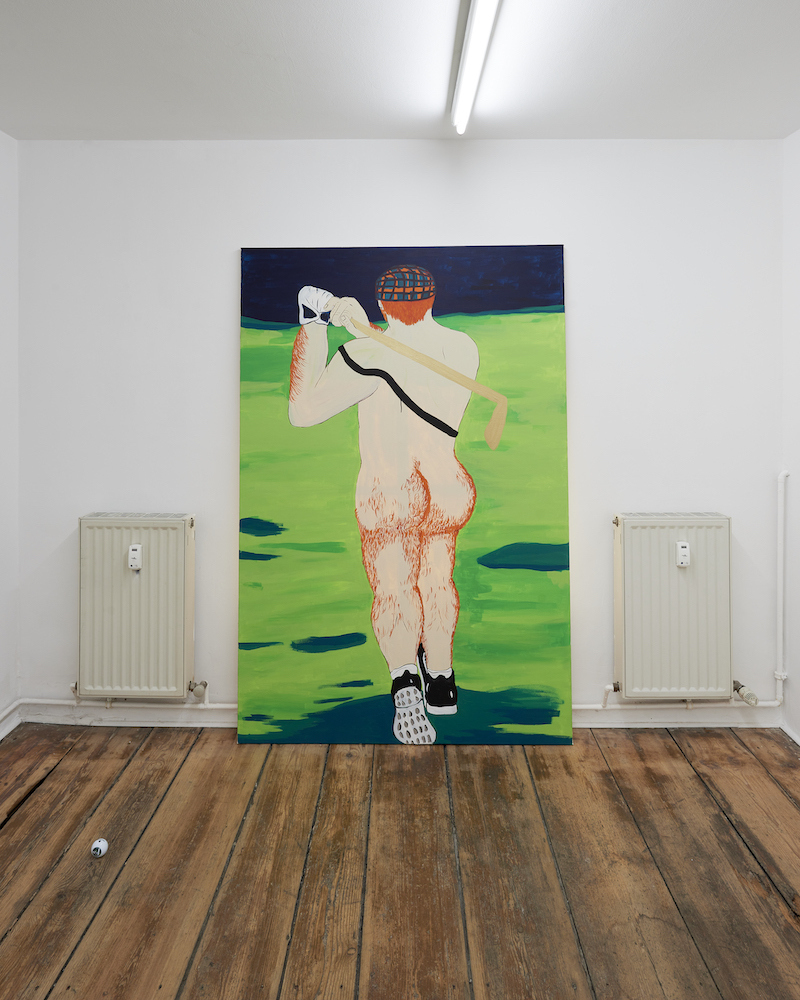
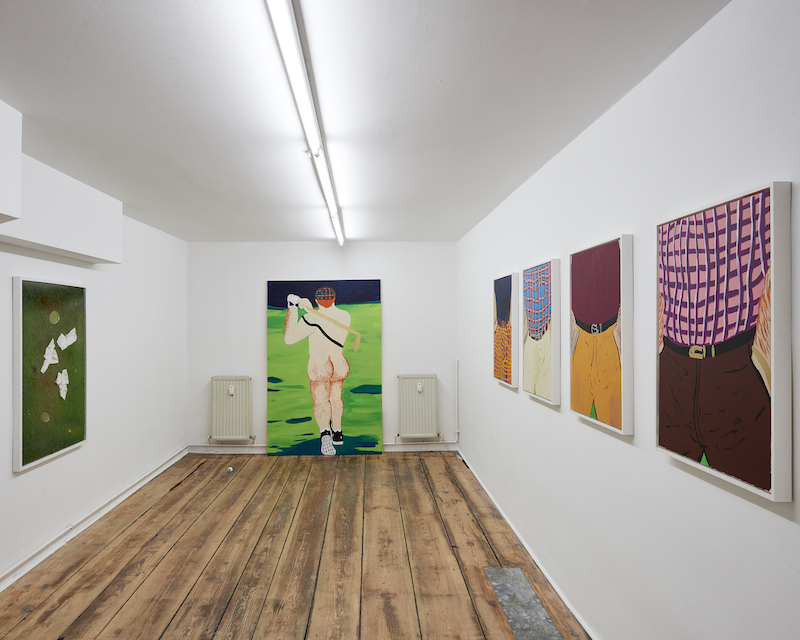
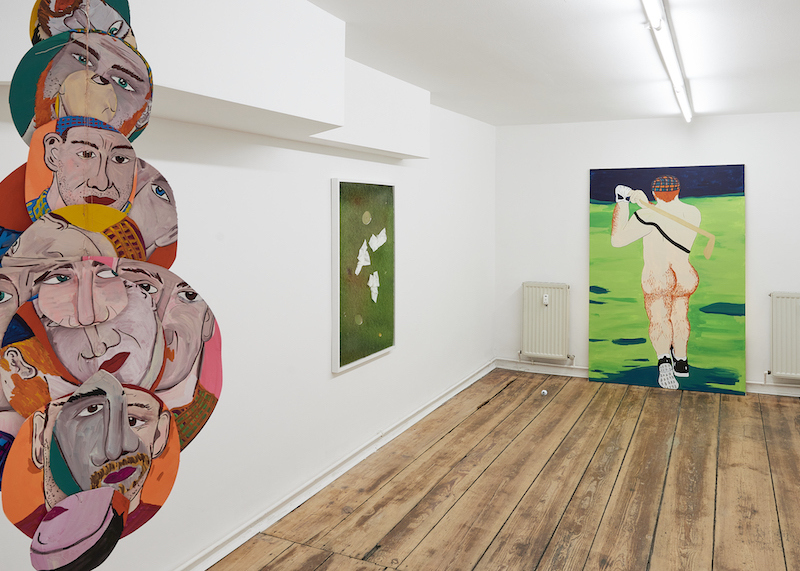
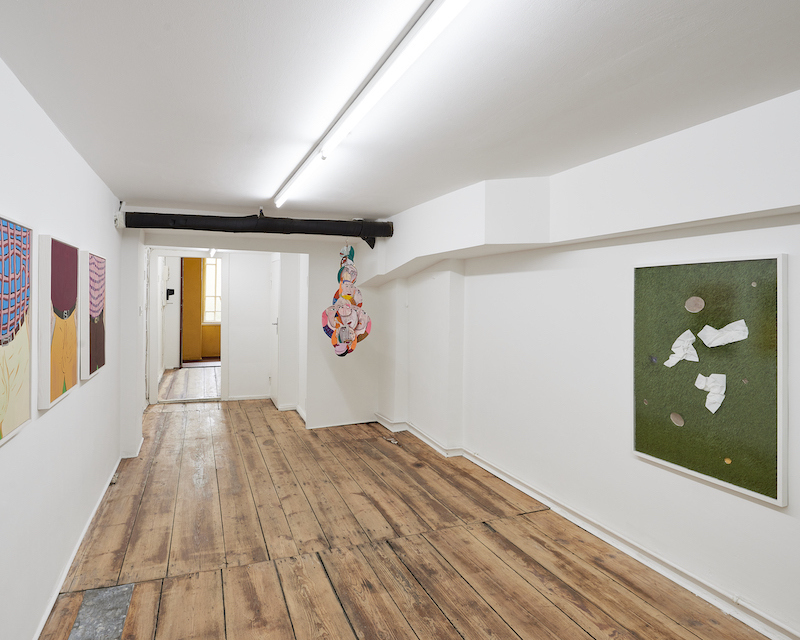
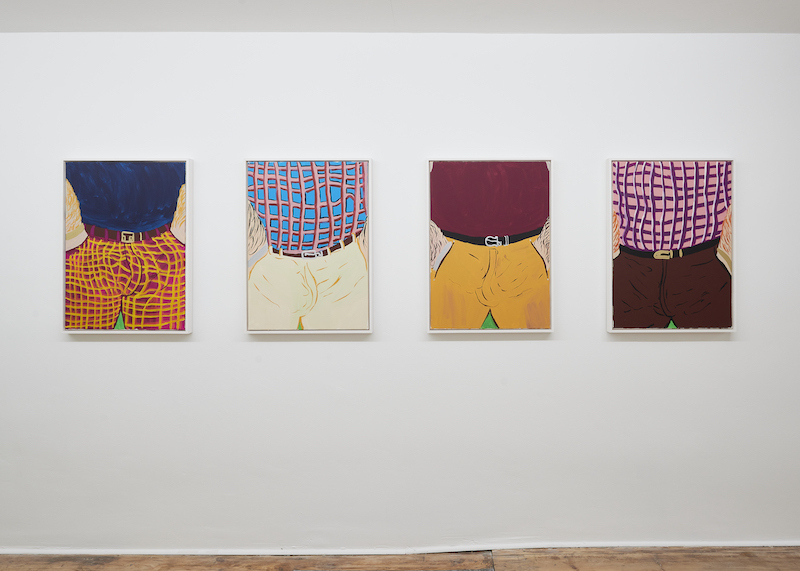
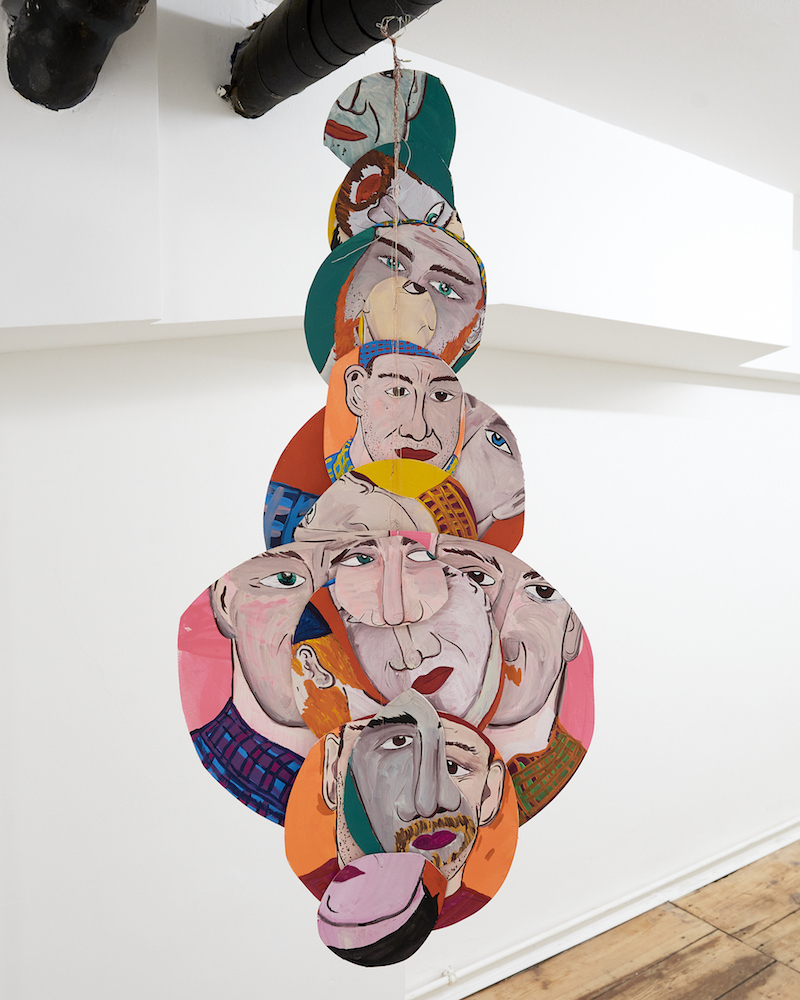
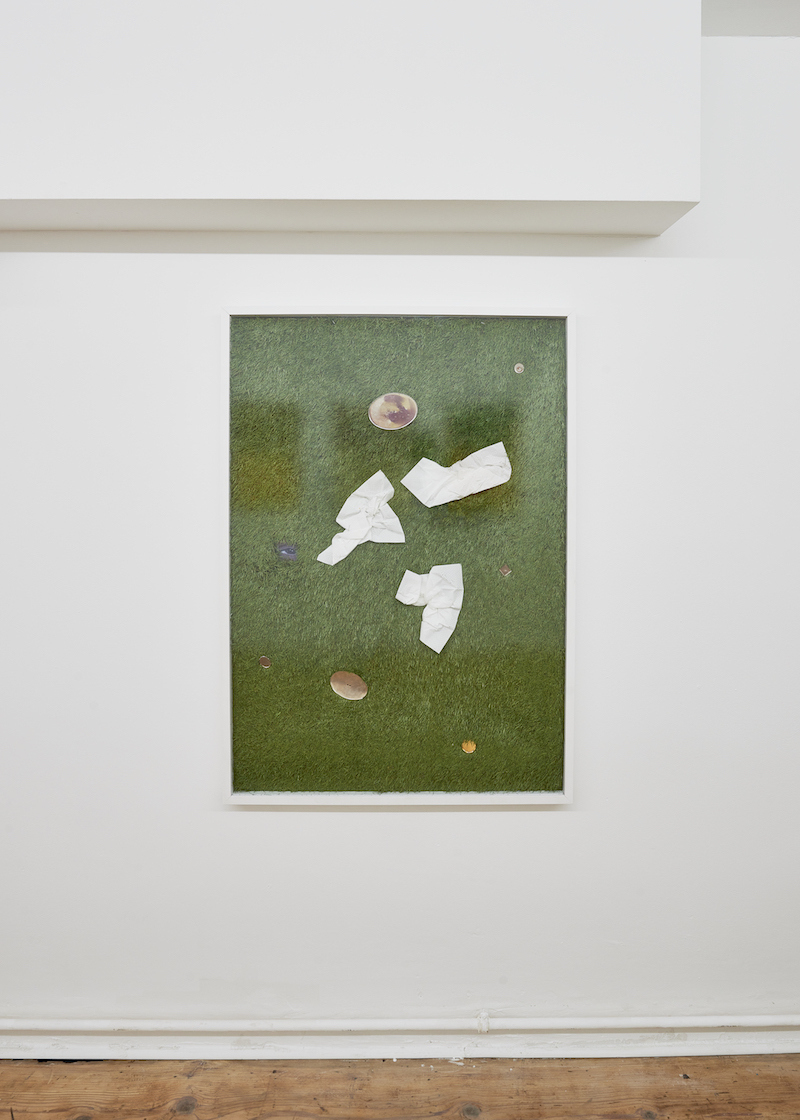
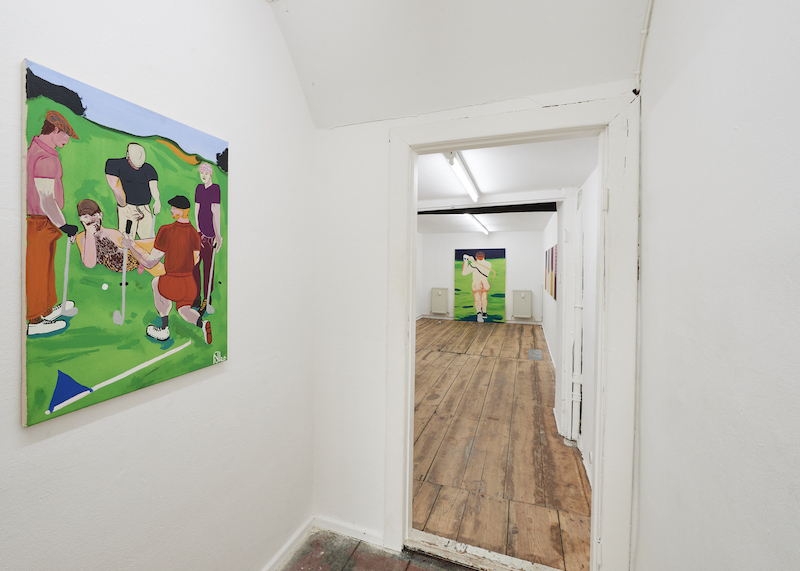
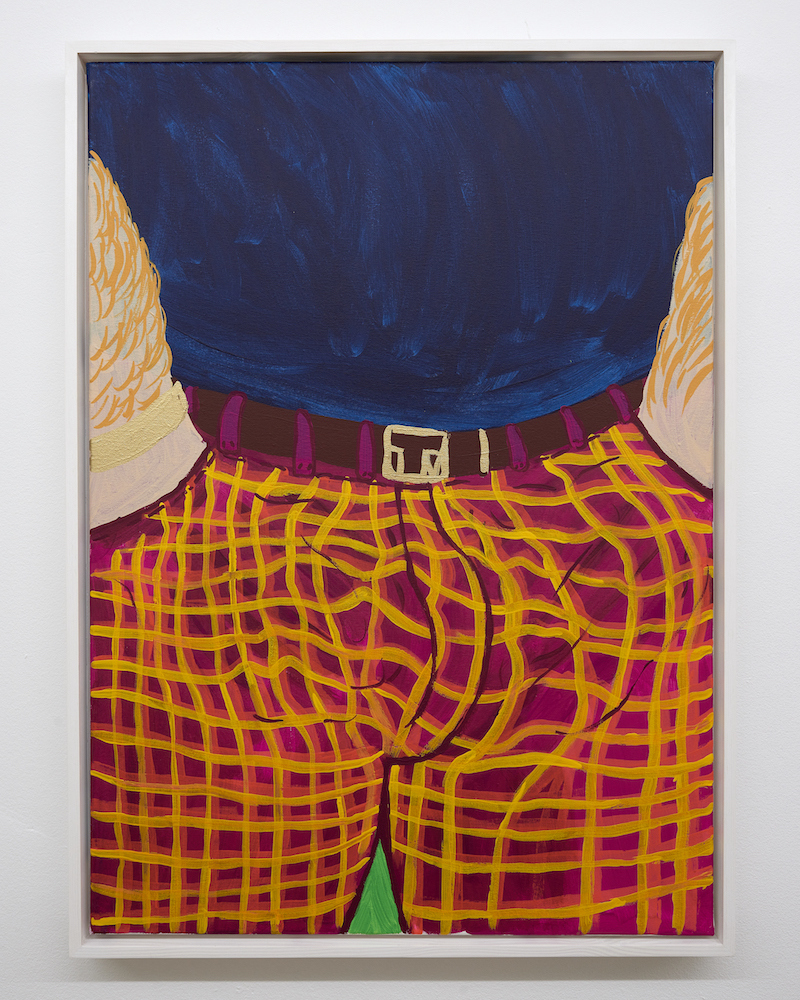
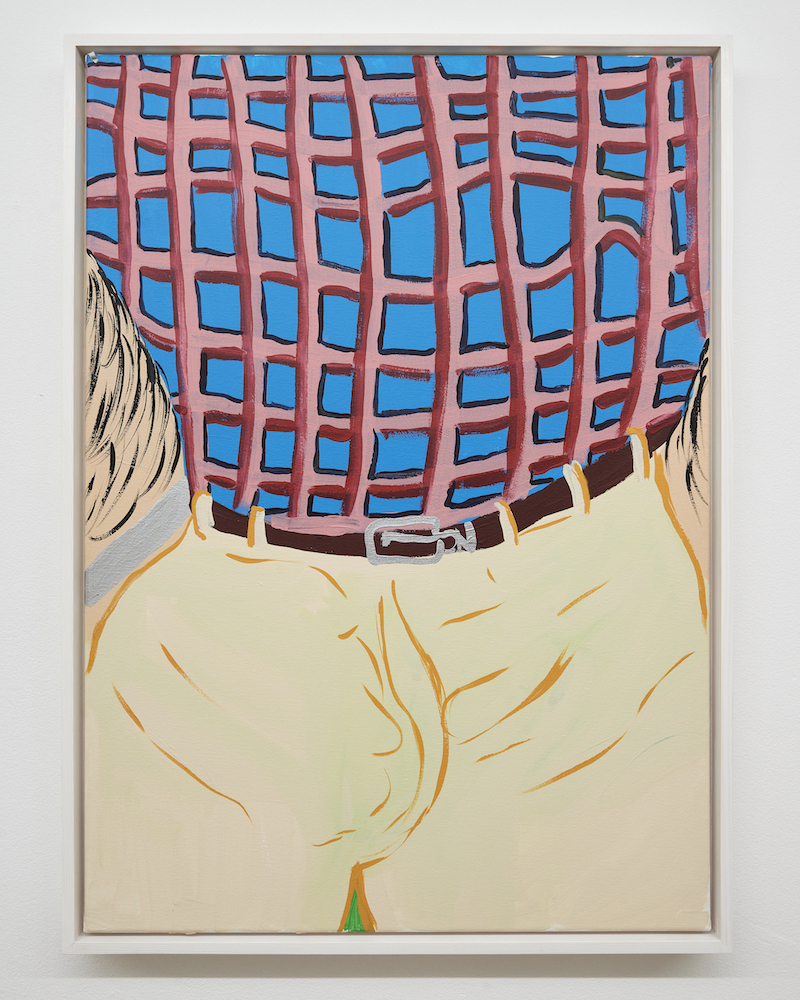
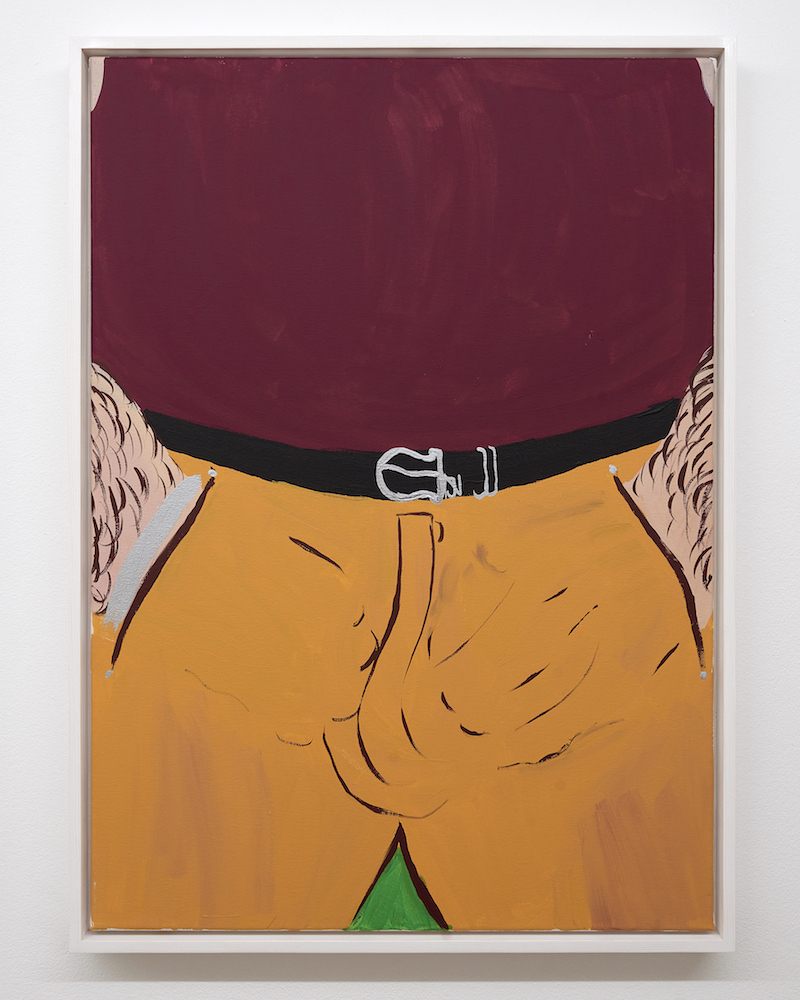
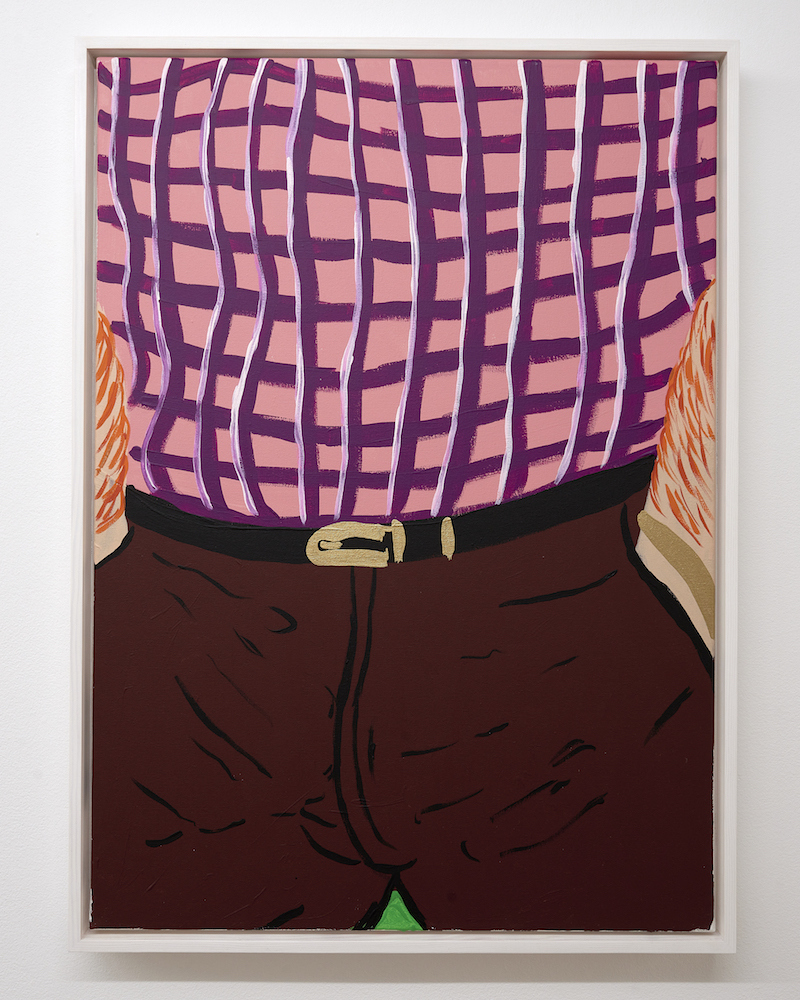
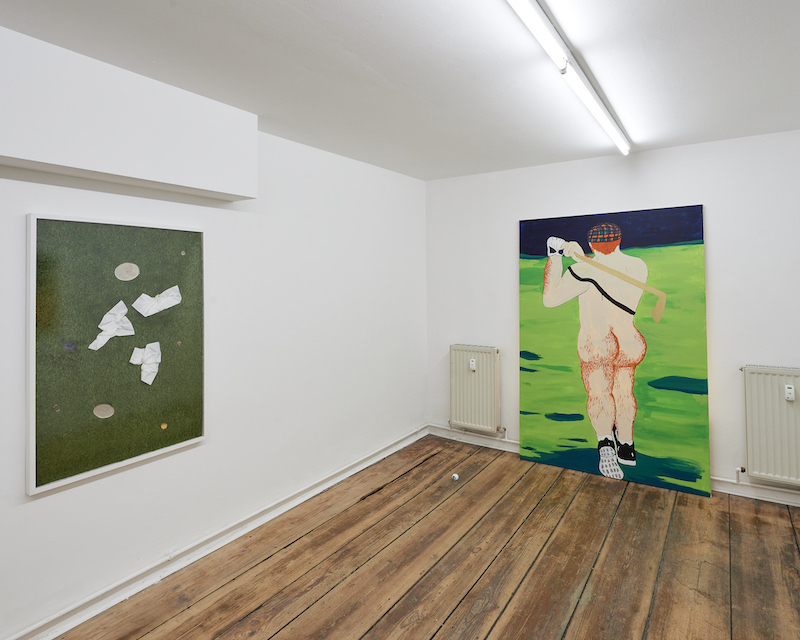
Location
stadiumDate
23.04 –21.05.2021Photography
groupshow.euText
As mythology would have it, days were made of surreal hallucinogenic trips, circle jerks, and group love relived through long-standing rituals that celebrated the universal and inevitable, existential isolation of the queen. - Juliana Huxtable
A naked man sprawled across a putting green is surrounded by a group of male onlookers. His hand covers his mouth, perhaps to conceal a smile that makes light of the ludicrous situation. A thick layer of body hair covers his chest and belly and a pink protuberance extends from between his legs. The voyeurs are dressed in the campy costumes that golfers wear, their hands stuffed in their pockets, playing with erections that are clearly visible through the material of their trousers. This painting, the first work in Josip Novosel’s show at stadium, establishes the artist’s concern with a sport that is often played by a white male ruling elite – a class a lot of gay men strive to be a part of. This is achieved with a tongue-in-cheek queering of modernism, a stylistic approach that has been explored in the artist’s previous work.
The contrast between naked and clothed figures, for example, recalls Édouard Manet’s Déjeuner sur l’herbe (1863), and as in Manet’s painting, the figures in Novosel’s canvas appear disconnected and aloof, as imprisoned by their individuated sense of self as they are by the toxic green that frames them. The artificiality of the Parisian park in Déjeuner is replaced with the manicured lawns of the golf club – the locus of middle class aspiration. While white heteronormativity tends to be the norm in such settings, the aggressive masculinity of the venture capitalist-cum-golfer is tempered by clashing pinks and reds that riff on a kitschy fauvism typical of the artist’s signature style. Centre stage is the muscular ass of a man, and appearing again prominently in a larger painting, is the ample posterior of a man teeing off. Despite this amusing content, a palpable tension suggests a farcical fantasy can turn violent: the vulnerability of the exposed man lying prostrate on the ground is in contrast to the men who stand so close and erect, armed with weapons.
Most gay men, being hard wired with memories of humiliation and rejection, know that violence can also be expressed socially. Those who were excluded from team sports or had a lack of success therein, carry the memory of it into adult life. Despite this or perhaps because of it, gay men who found it difficult to perform the tired rituals of heterosexual socialization tend to gravitate towards a social clique that most resembles the one that bullied them, sometimes even adopting a fetishized version of the attire worn by their tormentors. Like any ideal in which we invest our desires and dreams, we can easily lose sight of alternatives, tragically becoming the very thing that had originally tried to destroy us.
Thomas Butler
Thomas Butler